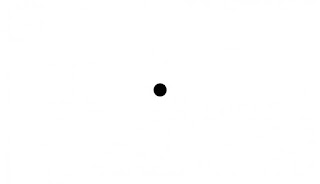Dear Reader,
Lots of discoveries and innovations have also been chanced upon. Take for example,
18 Accidental and Unintended Scientific Discoveries that Changed the World
What do you think?
Until next time.
Jyothin M. Madari 😊
We are in an era where everything is super precise. This is because new technological innovations are allowing us to measure everything to a very precise degree. Time, distance, events, emotions, habits, communication, thoughts, etc. practically everything can be measured in one way or another.
All this high precision data is helping us make better decisions, super accurate predictions and high quality assessments. In general, we are in a era where things are so precise that an individual can get siloed into his own 'precise world'. Take for example, Google search results. When the company started, results were great but there were also other results that were not very relevant. In 2018, Google search results are so precise that one does not even need to look at the 2nd result from all the results returned.
This leaves very little room for the user to 'chance' upon something that perhaps he is not immediately looking for but may be of interest to the user. Higher levels of precision leaves little chance to chance upon something whereas lower levels of precision gives a high chance to chance upon something. I have personally experienced this when I end up clicking on a search result lower down the relevance list that ends up taking me to other links and eventually I end up learning something new. Information that I otherwise would not have found and information that may be relevant to me at another time.
Lots of discoveries and innovations have also been chanced upon. Take for example,
18 Accidental and Unintended Scientific Discoveries that Changed the World
The higher the level of precision - lower the chances to chance upon. Like the illustration below, a simple black dot. It is precise and on the dot (pun intended). Very low chances of varied interpretations and its properties are well define.
The lower the level of precision - higher the changes to chance upon. Like the illustration below, new interpretations can be made from the illustration, new properties can be observed, different colors can be observed, etc.
What would be the right balance of precision and the chance to chance upon? I don't know and makes for an interesting scientific paper.
Those with a curious/exploratory mind would generally tend to go down the path of chancing upon something new even when they are not looking for it. Some companies use this behavior to their advantage and have algorithms integrated into their products that suggest the same, such as, "suggested link", "people who bought this also bought this", "friends of friends liked this post", etc. People are generally more curious about certain topics than others. For example, a 16-year old would be curious to know who in his/her class is friends with who (come to think of it this is a topic that transcends all ages 😉 ), who is married to who, who visited which place, who ate what and where and why and how, and so on. Makes for a great rabbit hole.
What do you think?
Until next time.
Jyothin M. Madari 😊


No comments:
Post a Comment